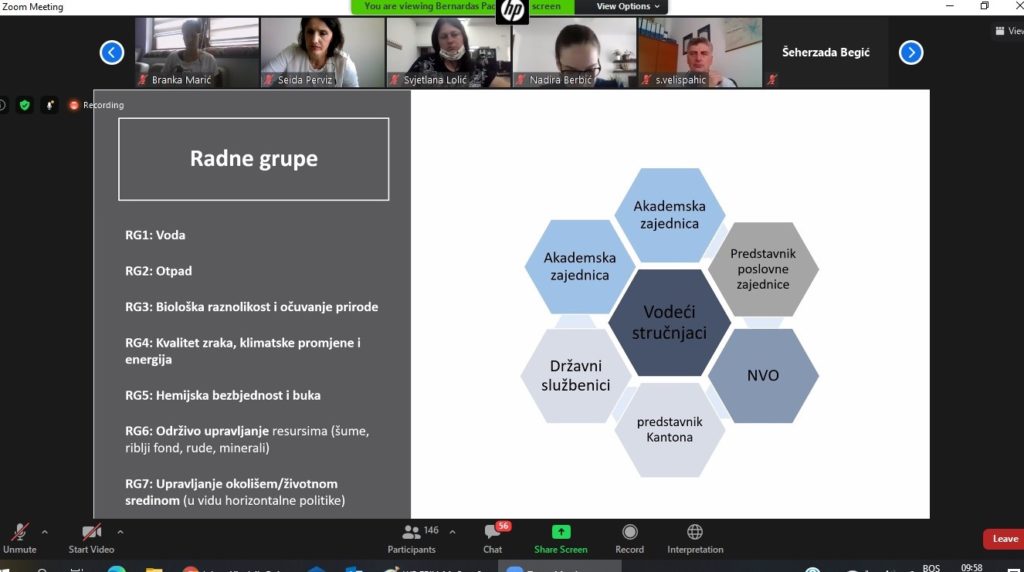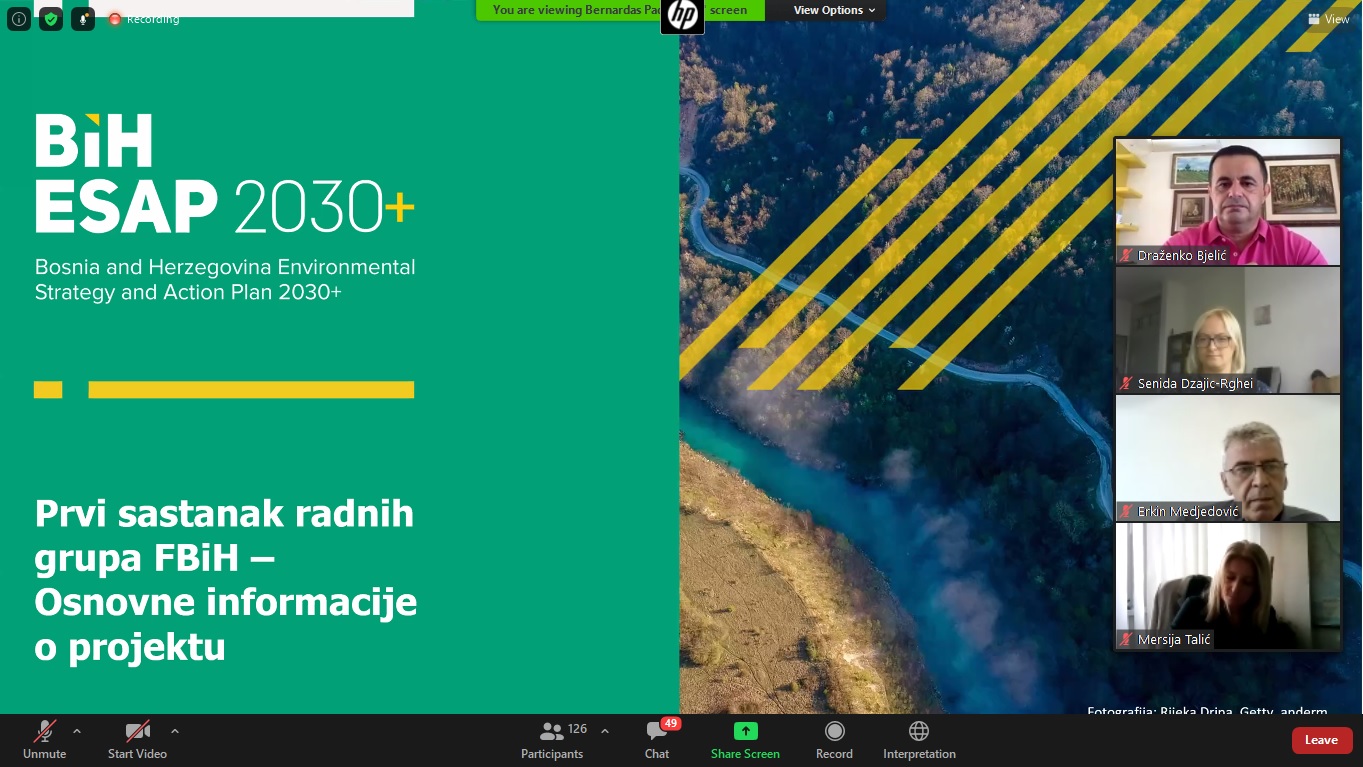Introductory session
A day after the meeting of working groups at the level of BiH, an online meeting of working groups at the level of FBiH was also successfully held. The meeting was attended by 146 participants divided into 7 thematic areas (Water; Waste; Biodiversity and Nature Conservation; Air Quality, Climate Change and Energy; Chemical Safety and Noise; Resource Management; Environmental Management). Representatives of the academic community, governmental, non-governmental and private sector, addressed the challenges and objectives when it comes to environmental protection at the FBiH level.

The meeting was opened by Bernardas Padegimas, Project Manager of BiH ESAP 2030+, who briefly presented to the participants the project and its importance for BiH.
Before the beginning of the working part of the meeting, the participants were greeted by Dr. Mehmed Cero, Assistant Minister in the Sector for Environment at the Federal Ministry of Environment and Tourism.
“The BiH ESAP 2030+ project is very important for the harmonization of the legal and institutional framework of BiH with EU regulations in the field of environment and in that way improve environmental conditions in BiH, FBiH, RS and BD BiH.”, said Dr. Cero.
Immediately after the introductory part of the meeting, the working part of the meeting began, during which the participants were divided into 7 working groups, where they identified key challenges and objectives for each of the 7 thematic areas.
A brief overview of the Waste Management thematic group
Regarding the thematic area of Waste Management, the meeting was actively attended by 27 participants from different sectors. The Situation Analysis in the sector of waste management was presented, followed by active discussion of key, but also numerous, waste management challenges.
As part of the presentation of the Situation analysis in the waste management sector, it was communicated that the average amount of waste generated per municipality in BiH is about 7,300 t/y, of which about 67% is currently being collected. These small quantities make the SWM system costly as practically each municipality has its own organization for collection and disposal (unless it has joined a regional landfill). The main method of waste treatment is disposal. Entity waste management strategies recommend the construction of regional landfills covering a specific geographical area. Until today only 28 municipalities in FBIH dispose on regional landfills. It was also emphasized that BiH has a lack of facilities for treatment and disposal of special categories of waste, including waste sludge, animal waste, medical waste, hazardous waste, etc.
Leading expert in the field of waste management, Irem Silajdzic, pointed out as a special challenge of waste management the principle of circular economy. Circular economy has not yet been introduced into the strategic framework of waste management in FBiH and BD BiH. At both the entity and local levels, the linear model of the economy is more dominant than the circular model. The introduction of an extended producer responsibility system for packaging and packaging waste in the FBiH and RS, and electronic and electronic waste in the FBiH, is the first step in the transition to a circular economy in BiH.
One of the participants of the working group, a representative of the non-governmental sector, pointed out that when it comes to environmental protection, it is crucial to reduce the amount of waste for final disposal and increase the amount of waste sent for reuse or recycling.
Within the discussion, numerous legal, institutional and technical challenges were identified, including the challenge of data collection and reporting. Based on these key challenges further objectives, activities and measures in the waste sector will be identified, and a new Environmental Strategy and Action Plan for FBiH for the next 10 years will be created.







